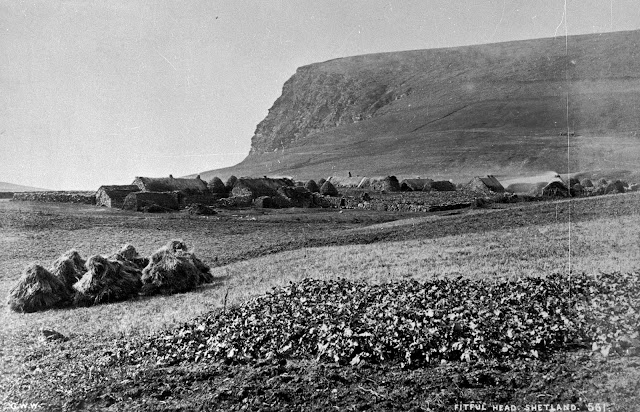Hope for a brighter tomorrow
Helen Kerr reviews ‘Cast Out’ – a melancholy tale of Shetland’s darker history, written by Lesley Leslie, performed by Islesburgh Drama Group and directed/produced by Jennie Atkinson
LAST week, Islesburgh Drama Group (IDG) presented – in partnership with BBC Radio Shetland – the new radio play Cast Out, a fictionalised account, set against the backdrop of real evictions that took place in 19th century Scotland.
IDG’s ability to deal with history, people and events comes across as strongly as ever through Lesley Leslie’s eloquent telling of what was undoubtedly the experience of many Shetlanders in times gone by.
The play opens with the voices of two young people – it becomes quickly evident they are deeply attached to each other. Andrew (played by Jamie Maskell) and Alice (played by Amber Thomson) are, for all intents and purposes, a Romeo and Juliet of another age.
The timeless appeal of this kind of story shows how the human condition is so similar throughout the ages. Spanning centuries and countries, their story is one we can relate to – two young people who have a strong bond which time, circumstance, family and status wishes to deny them. What is it about these kinds of tales that are so mesmerising? Is it that somewhere, in all of us, we believe love trumps all?
In the context of Shetland, we realise how devastating this would have been. Our population now is far beyond what it was in the 19th Century, but we can – as any small community might – imagine 27 houses near our own. 27 families we might know to some extent; the reality of their displacement is all the harsher in those terms.
The play is interspersed with music and sound effects to place us in various scenes. As with any radio play, we are left to imagine the finer details. The lack of visuals enables us to focus on the people, their voices, their stories. The fiddle music helpfully contextualises the play as being reflective of Shetland’s history and heritage, while providing an interlude that enables us to realise the scene change.
Other minor sound effects are well-used – bolts and latches of doors, flurries of voices for crowd scenes … cleverly, the natural beauty of Shetland – the beautiful, wild seas that enclose her and the seabirds that circle above her – becomes the backdrop for the love Andrew and Alice share.
Andrew, it seems, has a wealthy landowner for a father, who seems to shirk his religious responsibilities for the sake of monetary gain. Donald, played by Karl Ward, is a ruthless man who evicts tenants, locks up his own son, and then loses his wife as a result of his cruel neglect. No doubt typical of the time, the laird is more concerned with the gains he will make from the evictions – Ward is convincing in his role as we see his conniving selfishness become his own demise.
Between the fiddle, the bolts, the gulls develops the tale of these Shetlanders of old. We soon meet Mary, the laird’s wife who cannot live with Donald after he locks their son up to prevent him from moving away with Alice and her father.
For five days, we realise Andrew is kept prisoner against his will. Played by Karen Erasmuson, Mary is the voice of reason – despite her station in life, she has the soft sympathy of a compassionate mother.
It would be lovely to say that all ends well. But, as we know, so many of the darker parts of history do not serve this purpose. We do not live in the fairy tale where there is a happy-ever-after. We have moments where we think that maybe, just maybe, there are glimmers of hope. Andrew does go to be with Alice.
But the letters we are read towards the end of the play reveal no such lasting joy. Alice dies and Donald commits suicide.
Where do we go with this melancholy? We cannot dress up history to seek the needs of a crowd who wants a fairy tale. The darkest shadows of the past are upon what we build our future.
So, we can take the hope from the sorrow, the lessons from the hardships … IDG has done another wonderful job of bringing us a piece of the past – maybe the hope is that, in all the small ways we can, we can make a brighter tomorrow.
Helen Kerr


